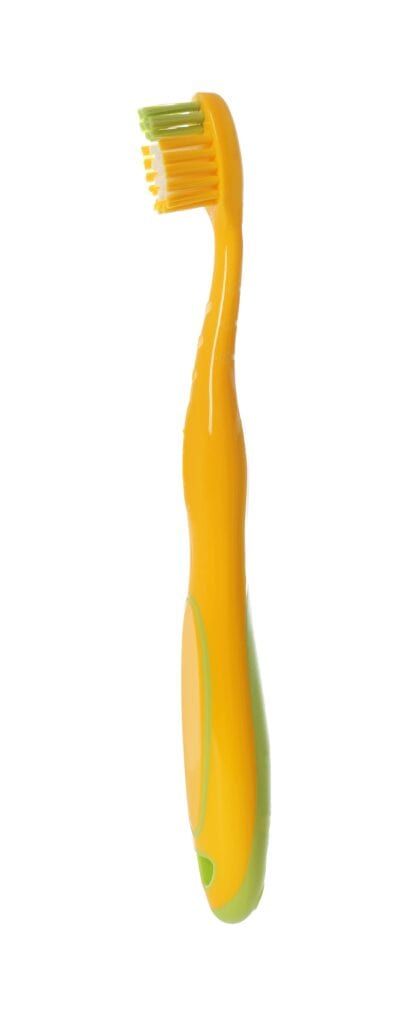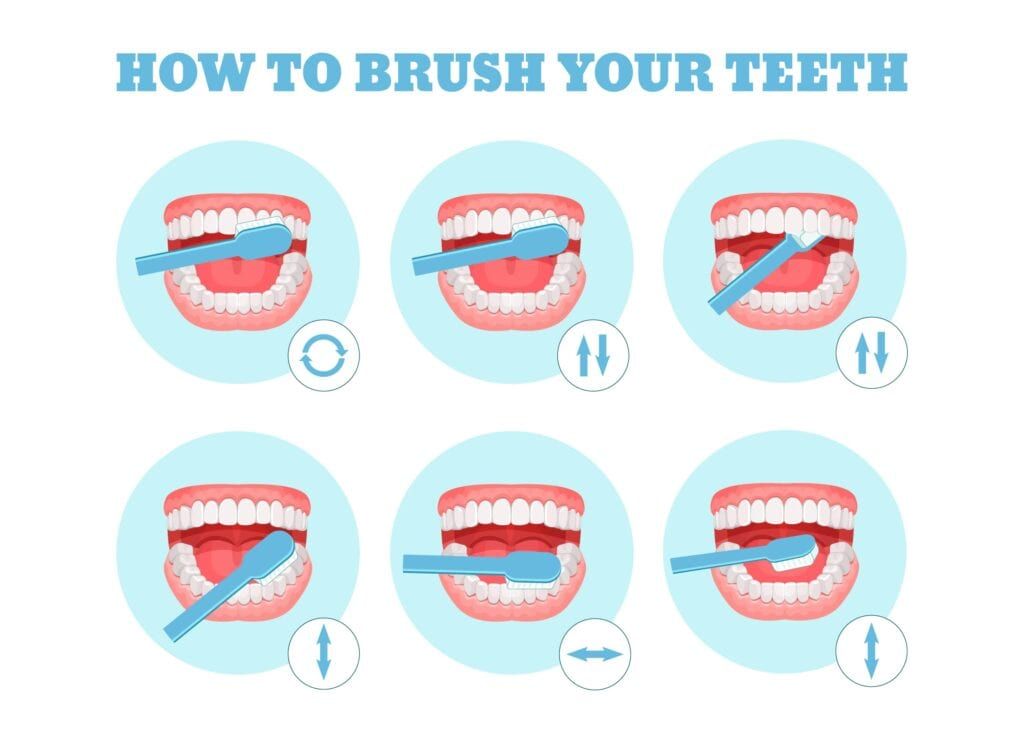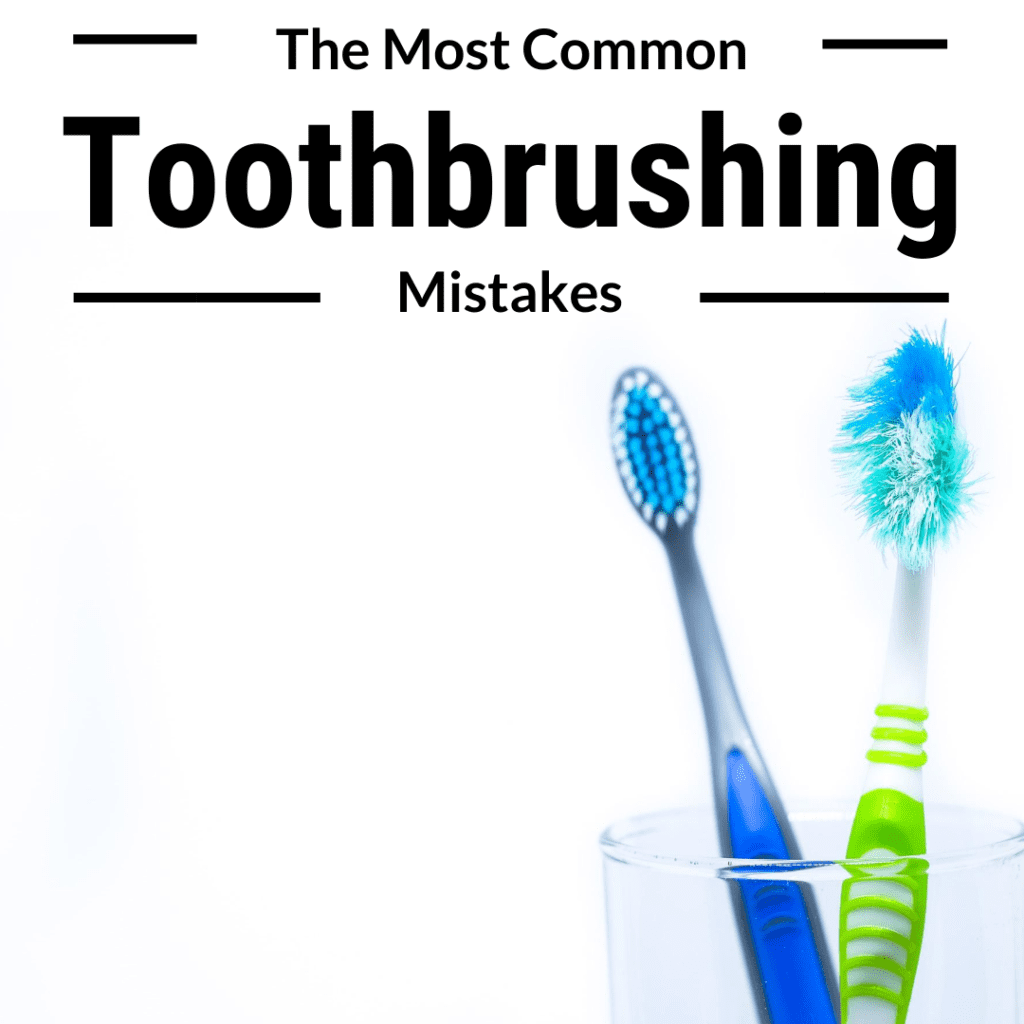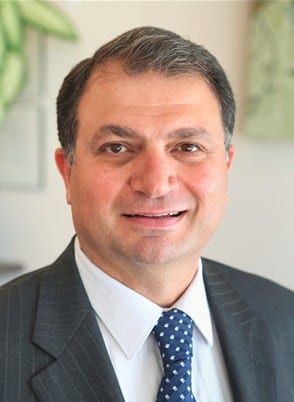Did you know that you brush your teeth approximately 720 times a year? Brushing your teeth is an integral part of your oral hygiene routine and it also creates the foundation for your oral health. People with diligent brushing habits generally have much better oral health compared to those who do not have good brushing habits. However, there is more to brushing your teeth than simply doing it. In order to have an effective brushing technique, you must also be sure to use the proper technique. In order to maximize the effectiveness of your brushing routine, here are some of the most common mistakes people make while brushing their teeth:
Not using the right tools

One of the first steps in having an effective brushing routine is to make sure that you are using the proper toothbrush for the job. According to the American Dental Association, the ideal toothbrush is one that has soft, firm bristles and is long enough to reach the back of your mouth. Unfortunately, using a toothbrush that is too hard will not make your teeth any cleaner, rather it will only wear down your email animal faster. To make sure that you are using the proper toothbrush, you can look for the ADA Seal of Acceptance. This ensures that you are getting a toothbrush that has been studied and passed by dental professionals as being an appropriate toothbrush.
Forgetting to replace your toothbrush
In addition to having a proper toothbrush you must also remember to replace this toothbrush. One common mistake that many people make is that they simply forget to replace their toothbrush. On average, you should expect to replace your toothbrush every 3 to 4 months. Signs your toothbrush needs to be replaced include: bristles that are frayed, broken, or discolored. Bristles that are excessively worn cannot remove plaque as effectively, therefore these are signs your toothbrush needs to be replaced. It is also recommended to replace your toothbrush if you have been sick recently, since this can cause excess bacteria to accumulate on your toothbrush.
Brushing too hard
Many people believe that if they brush their teeth harder they can remove more stains and plaque. However, Dental plaque is extremely soft and requires minimal pressure for removal, while tartar cannot be removed with a toothbrush. Stains on the surface of your tooth may be able to be removed with a toothbrush, however many stains reside within the dentin layer of the tooth and cannot be removed by a toothbrush. If you are concerned about stained teeth, then you should ask your dentist about teeth whitening treatments. Ultimately brushing your teeth too hard only wears down your enamel faster and does not help with stain removal.
Moving the toothbrush incorrectly

As a result of trying to scrub the teeth clean, many people tend to move their toothbrush sideways across their teeth. In actuality, you are supposed to move your toothbrush and small circular motions starting from the gum line and working your way to the end of the tooth. This technique helps to effectively remove plaque from the surface of the teeth and along the gum line, while minimizing damage to the enamel. If you find yourself struggling with this approach, then you may want to invest in an electric toothbrush. This is because all electric toothbrushes are programmed to use the circular technique.
Rinsing after brushing
After spitting out toothpaste, many people rinse their mouth with water. While this may seem like the appropriate thing to do, dentists actually recommend that you do not rinse after brushing. This is because toothpaste contains fluoride, which helps to strengthen tooth enamel and coats the teeth to prevent future plaque accumulation. Since rinsing after you brush removes the fluoride from the surface of your teeth, it is recommended to avoid rinsing so that the fluoride can more effectively do its job.


